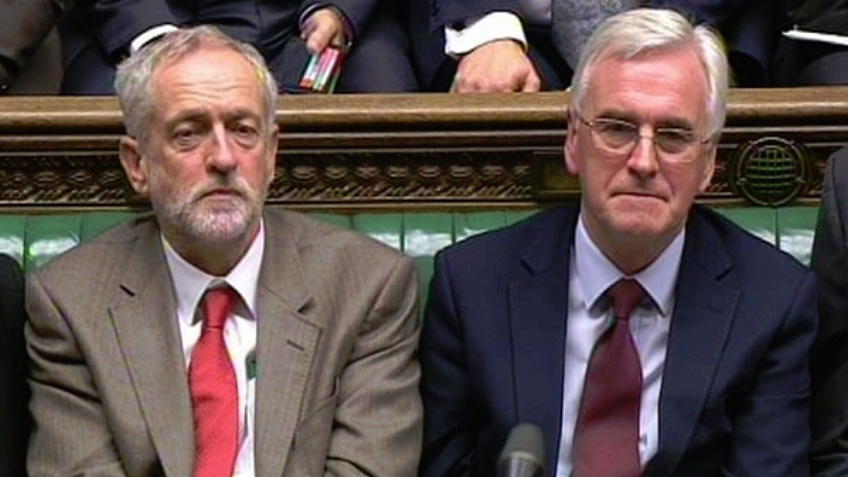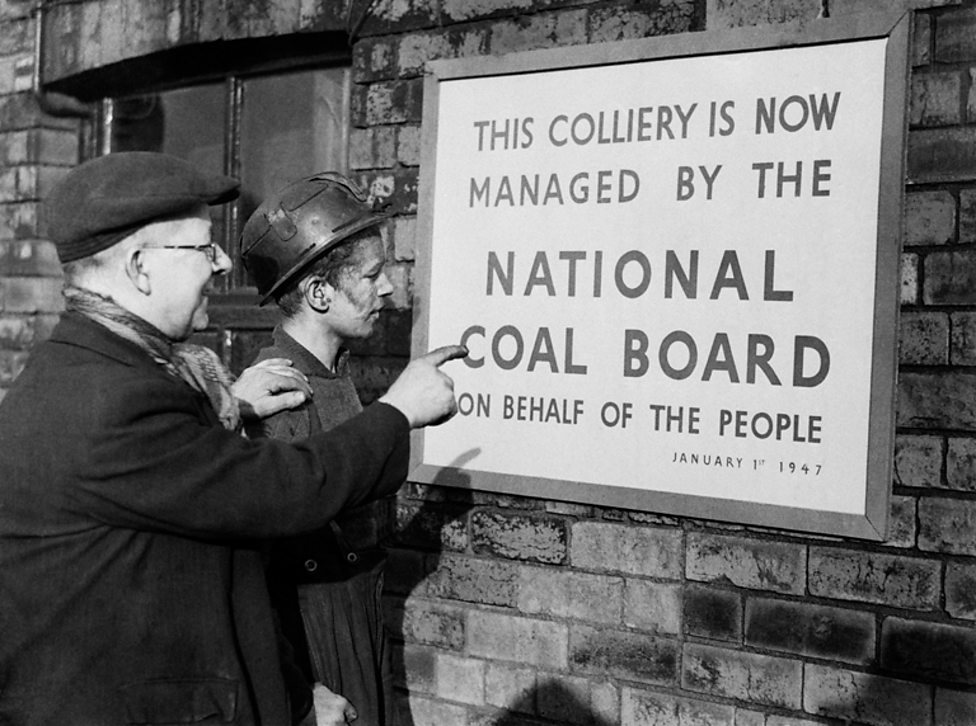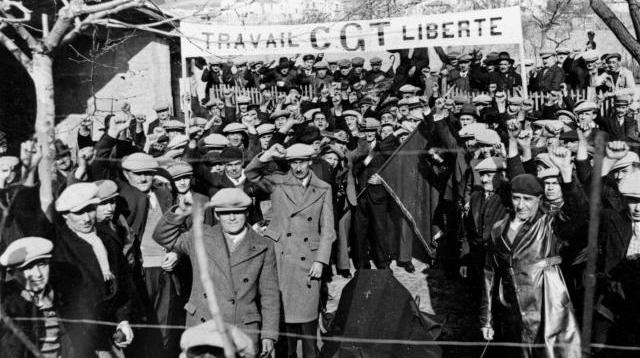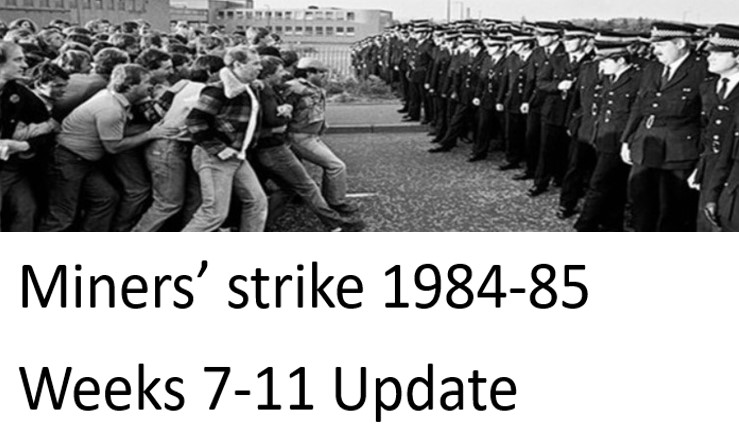Part One – Nationalisation
This following text is the first part of a speech made to the National Confederal Committee (NCC) of the CGT labour confederation in France, held on the 18th and 19th March 1935.
Although the speech was made by the delegate from Isère, Alexis Bardin, it was actually written by the exiled Russian revolutionary leader Leon Trotsky. Under the conditions of his refugee status in France, Trotsky was forbidden to intervene in French politics. He was finally expelled from France in June 1935. Bardin, a supporter of Trotsky’s ideas, used his platform on the NCC to present Trotsky’s criticisms of CGT policies.
France was going through a major economic and political crisis, and the CGT launched a major campaign around a “Plan” summing up its social and economic program. It also produced “notes for propagandists” to guide members in explaining the policies. Trotsky refers to these documents.
We believe the ideas presented in this text are highly relevant to present-day discussions about the kind of policies the labour movement must develop in the fight against capitalism, especially on the questions of nationalisation, workers’ control, and the struggle for socialism.

Of course, the Labour right in Britain have long since given up even pretending that their goal is socialism and have embraced managing capitalism alongside simply furthering their careers. But even on the left of the party there are those leaders and ordinary members who are honest and well-intentioned in their aspirations for socialism, yet who still fall prey to the same muddled and reformist ideas that Trotsky so clearly and sharply criticises.
It is essential to subject such ideas to friendly but rigorous criticism, and in that spirit, we are republishing this speech.
[NB. Some very specific and topical references from the time it was written have been edited out, shown by […], and crossheads (subtitles) added for ease of reading. Part two, which deals more with workers control, and policies to win support from peasant farmers. can be read here]
*******
Part One
Comrades […]
In the different texts of the CGT, we often read that what is involved is a renovation of the national economy, sometimes counterposed to “economic and social reorganization,” but sometimes also identified with it. Comrades, it is very difficult to say to the workers or the peasants, “We want to renovate the national economy,” when everybody now uses the same expression: the Patriotic Youth, the Popular Democrats, the Peasant Front, sometimes even the Radicals, but above all M. Flandin — all of them proclaiming and promising the renovation and even the reorganization of the national economy.

Our plan must be distinguished from those of the class enemy through the precise definition of its goal. All the renovations and reorganizations that I have just spoken of seek to remain on a capitalist base, that is, to safeguard private property in the means of production. And the CGT’s plan?
Does it aim to renovate capitalist economy or to replace that economy by another? I confess to not having found an exact reply to this question. Sometimes we read in the same texts that what is involved is not a transformation of the present system but only emergency measures to alleviate the crisis. However, we also find it stated that the emergency measures must open the way to more profound transformations.
Perhaps all that is correct, but we never find the exact definition of the system we want to end up with. What sort of so-called profound transformations should there be? Is it only a question — I am just speaking hypothetically — of transforming a section of private capitalism into state capitalism? Or do we want to replace the whole capitalist system by another social regime? Which one? What is our final goal? It is astonishing, comrades, but all the statements and even the “notes for the use of propagandists” say absolutely nothing about it.
Do we want to replace capitalism by socialism, by communism or by anarchy a la Proudhon? Or do we simply want to rejuvenate capitalism by reforming and modernizing it? When I want to travel a distance of one or two stations only, I still must know where the train is going. Even for emergency measures we need a general orientation. What is the social ideal of the CGT? Is it socialism? Yes, or no? We must be told — otherwise, as propagandists, we remain completely disarmed before the masses […]

The only doctrinal authority cited in the statements of the CGT is Proudhon, the theoretician of anarchy. It is he who said that the “workshop must replace the government” Do we aspire to anarchy? Do we want to replace capitalist anarchy by pure anarchy? It seems not, since the plan speaks of nationalization of the key industries. In practical terms, nationalization signifies statisation. Now, if we have recourse to the state to centralize and direct the economy, how can we invoke Proudhon, who demanded only one thing of the state: that it leave him alone! And in truth, modern industry, the trusts, cartels, consortiums, banks, all that totally surpasses the Proudhonist vision of equal exchanges between independent producers. Why, then, invoke Proudhon? That can only increase the confusion.
Capitalism or socialism
To the present capitalist system, which has survived for a long time, we can counterpose only socialism. As propagandist for our trade-union organization, I believe I am expressing the idea of many militants in demanding that the plan for economic renewal be renamed the plan of measures for the transition from capitalism to socialism.
Then, before taking his place in the railway car, each worker and peasant will know where the CGT train is heading.
Comrades, for our propaganda to be effective, this clarification is absolutely indispensable.
The CGT plan stresses, above all, the fact that credit is the guiding lever of the economy. Comrades, I am far from being a specialist in questions of banking and credit I mainly want to educate myself in order to be able to explain the issue to the workers. But I confess again that I have not found the clarifications that I need in the documents of the CGT. They speak of “nationalization of credit,” and “control of the banks.” It’s more by way of exception that the same document speaks of “nationalization of the banks.” Can you control credit without having nationalized the banks? You can control only what you hold firmly in your hands.

Do we want to nationalise the banks or not? I suppose yes. Then it must be said openly and clearly. Unfortunately, instead of this being the case, we find vague formulations, for example: “The bank must be at the service of the economy, and not the economy at the service of the bank” (p. 6 of the statement). A worker asked me to explain that nebulous phrase to him. Seeing my perplexity, he remarked: “But the bank always remains in the service of the economy, like the trusts, the railways, etc. […] They all serve capitalist economy in robbing the people.” This harsh remark seemed to me much more correct than the formulation that I cited above.
The capitalist bank serves the capitalist economy. We should say therefore: We now want to seize the bank out of the hands of the capitalist exploiters in order to make it a lever of social transformation, that is, of socialist construction. I would very much like to see this clear formulation in the text of the plan.
Small investors
The nationalisation of the banks could naturally be carried out only to the detriment of high finance. As for small investors, their interests must be not just spared, but protected. We must choose between the interests of the financial sharks and the interests of the middle classes. Our choice is carried out by the expropriation of the former. We will create for the latter conditions much more favourable than at present.
But nationalization of the banks is not enough. After nationalizing the banks, we must proceed to their complete unification. All individual banks must be transformed into branches of the national bank. Only this unification can transform the nationalized banking system into a system of bookkeeping and direction for the national economy.
In the “notes for the use of propagandists,” I find some very valuable statistics concerning the organization of the dictatorship of finance capital in our country. Basing themselves on a 1932 investigation, the notes state the following: “In practical terms we can say that ninety persons own and control the economy of our country.” There is a statement that is precise and overwhelming in its precision. The welfare or misery of a hundred million human beings — for we cannot forget our unfortunate colonies, which the ninety sharks bleed even more than the metropolis — the fate of a hundred million people depends on the wave of the hand of ninety all-powerful magnates. It is they who are making a mess of the national economy to preserve their miserable, bloody privileges and power.
Unfortunately neither the text of the plan nor the commentaries on it indicate what must be done with these ninety monarchs who control us. The response should be clear: we must expropriate them, unseat them, to return to the plundered people what belongs to them. This would be a good beginning toward accomplishing the plan. I move, in the name of the departmental union of Isère, to inscribe this measure in the text of the plan. Our propaganda will then become more vigorous and much more effective […]
We may congratulate ourselves in any case on the fact that the latest edition of the plan poses the following thesis: the nationalization of certain key industries is necessary. However the word “certain” seems superfluous. Naturally we cannot hope to nationalize with one blow all industries, small, middle and big. On the contrary, the regime that we want to establish must show the greatest indulgence toward small manufacturers and artisans, as well as small merchants and peasants. But the text speaks explicitly of the key industries, that is, the powerful trusts and cartels, the combines like the Comité des Forges [Association of Heavy Industries], the Comité des Houillères [Association of Coal Industries], the Compagnies des Chemin de Fer [railway companies], etc., etc. As key industries, they must all be nationalized, and not only “certain” ones […]

Expropriating the exploiters
Under the heading “Conditions of Acquisition,” the text of the plan speaks of the conditions for nationalizing the key industries and obviously the banks also. We are accustomed to thinking that nationalization should take place by expropriating the exploiters.
However, the plan speaks not of expropriation but of acquisition. Does that mean that the state must simply buy from the capitalists the firms created by the workers’ labor? Manifestly so. At what price? The statement replies: the price will be calculated “according to the real value at the time of purchase.” We learn later that “the amortization will be calculated over a period of forty or fifty years.” There, comrades, is a financial deal that will hardly appeal to the workers or peasants. What is this? We want to transform society, and we begin by total and complete recognition that capitalist property is sacrosanct!
The chairman of the council, M. Flandin, was correct when he said in parliament recently, “Capital is accumulated labor.” And all the capitalists in parliament applauded this formulation. Unfortunately, it is not complete. To express the truth, it would be necessary to say: “Capital is the labor of the workers accumulated by their exploiter.” Here is the time to cite Proudhon on capitalist property. You are acquainted with the formulation: “Property is theft” In this sense it could be said: “The property of the ninety magnates who control France is accumulated theft”
No, we don’t want to buy back what has been stolen from the working people; we don’t want the new regime to be burdened with debts from its first day when it will have many tasks to resolve and many difficulties to surmount Capitalism is bankrupt It has ruined the nation. The capitalists’ debts to the people exceed by far the real value of their enterprises. No! No buying back! No new slavery! Expropriation pure and simple or, if you wish, confiscation.
I really hope that in this assembly, which represents the oppressed, the exploited, no one is moved by sympathy for the tycoons threatened with unemployment and poverty. In any case, they are farsighted enough to cover themselves on all sides. And if one of them really found himself without resources, the state would provide him the same pension as retired workers.
We have enough of sick and poverty-stricken elderly people and youth, permanent unemployed and women condemned to prostitution. To put an end to all this human misery, we will greatly need the amounts that the plan is all too generously prepared to confer on the exploiters and their descendants over a half century. That provision of the plan, comrades, would have us bringing up two new generations of sluggards! No, that paragraph alone is enough to compromise the entire plan irreparably in the eyes of the starving masses. Comrades, strike out that paragraph as soon as possible. That is another proposal from our departmental union […]

To hide the cheating from the eyes of the people, there exists a magnificent method called business secrecy — necessary, they claim, for competition. This is a monstrous lie. Flandin’s Industrial Agreements Act demonstrates that the capitalists no longer have secrets among themselves. So-called business secrets are nothing but the conspiracy of the big capitalists against the producers and consumers. The abolition of business secrets must be the first demand of the proletariat as it prepares to direct the national economy.
Strictly speaking, the CGT plan is not yet a plan; it contains only general directives and not very precise ones at that. A real economic plan requires concrete statistics, figures, diagrams. Naturally we are very far from that. The first condition for a first outline of the plan consists in setting forth everything that the nation possesses in productive, material and human forces, in raw materials, etc. We must be acquainted with the real costs of production like the “incidental expenses” of capitalist fraud and for that we must abolish once and for all the fraudulent plot that goes under the name of business secrecy.



